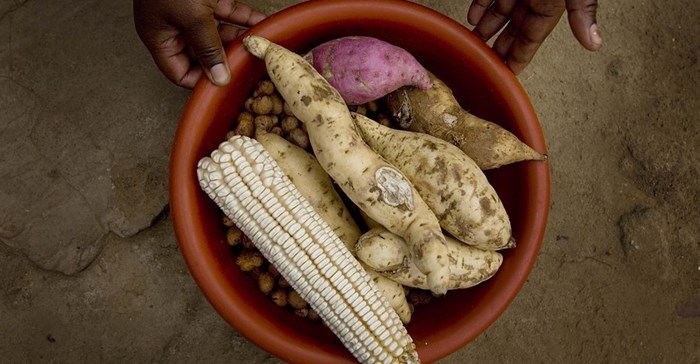
Marketing & Media trends
Industry trends
BizTrends Sponsors
Subscribe & Follow
#BizTrends2019: Food security and the planet are on a collision course

By 2050, Africa will have 25% of the top 20 most populated cities in the world – and by 2100, 65% of the top populated cities will be in Africa. Not just population is growing, greenhouse gas emissions are predicted to increase by 50% by 2050. Some people say "nobody really cares about the environment to change the food they eat" yet we are at least acutely aware.
This year, Cape Town nearly become the first city in the world to run out of fresh water, with residents being forced to live on 25 litres per day, add load-shedding, and changing weather patterns – there has never been a more important time to invest in agricultural practices that benefit the environment, as well as human health.
Agricultural production is the largest contributor to greenhouse gases here in South Africa, producing 30.5 Mt CO2e.
If we think about cows and pigs as little manufacturing plants for protein, they are really inefficient. They consume a lot of plant inputs (7-8 per kg of beef), water (15,400 litres per kg of beef), and emit a massive amount of gas - annually cows burp up to 117kg of CO2.
Nothing against cows; it is no longer sustainable to raise over one billion animals for food each year as the toll it takes on the environment has started to catch up. Food security and environmental sustainability are on a collision course and now, more than ever, we need to see a drastic change in the type of meat and dairy consumed by the majority of the world's population.
Plant-based foods are the future
With some products experiencing incredible triple-digit growth with this new food category, essentially, the sky is the limit Plant-based foods aim to mimic exactly the everyday food we consume (e.g., burgers, eggs, and milk) – by bypassing the inefficient manufacturing system (e.g., animals) and making food directly from plants.
Beyond Meat is an innovative company on the forefront of this pro-earth movement that aims to promote the health and well-being of animals and humans, while also drastically cutting down on greenhouse gas emissions, land, and water usage. By introducing game-changing inventions like the Beyond Burger & Beyond Sausage, for example, they have proven that we no longer need to depend on animal-based proteins as our main source of nutrients. Eating a plant-based diet, or even a diet that is mostly plant-based has shown to improve, and even reverse many chronic illness diseases, like cancer and heart disease.
The introduction of cleaner, healthier plant-based proteins will provide the resources necessary to see the health and wellbeing of Africa as an economy to improve.
An increase of overall health improvement
Shifting away from animal-based foods could add up to 49% to the global food supply without expanding croplands while simultaneously significantly reducing carbon emissions and waste byproducts that end up as toxic run-off in our water supply. Not only will the demands of climate change have been met in a more sustainable way, but the overall health of the individual will steadily improve the more they shift to plant-based protein sources.
Data released by Nielson indicated that in 2016 alone "the plant-based foods industry has experienced dollar sales growth of 20% over the last year with sales topping $3.3bn." The report also estimates that the plant-based industry contributes over $13.7bn dollars annually and has created more than 60,000 jobs nationwide in the USA.
With Africa growing 2.25 times faster than the rest of the world there is a massive opportunity for plant-based proteins. Infinite Foods aims to introduce the leading international plant-based brand to sub-Saharan Africa to bridge the ever-growing divide between protein accessibility and sustainable environmental practices by introducing more plant-based proteins across sub-Saharan Africa and beyond.












